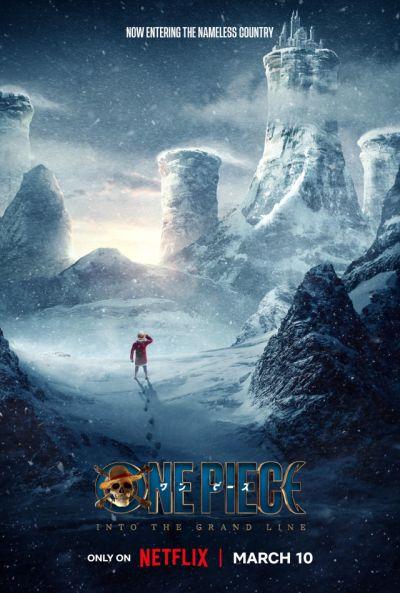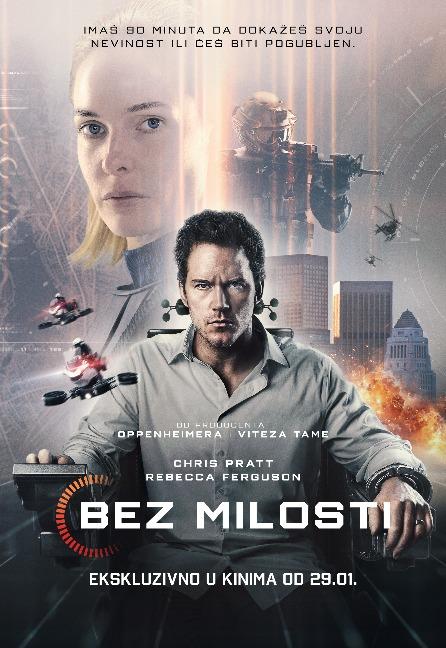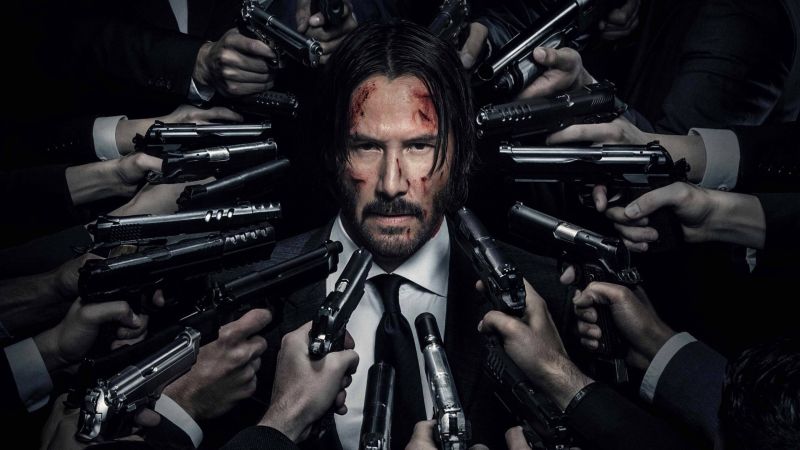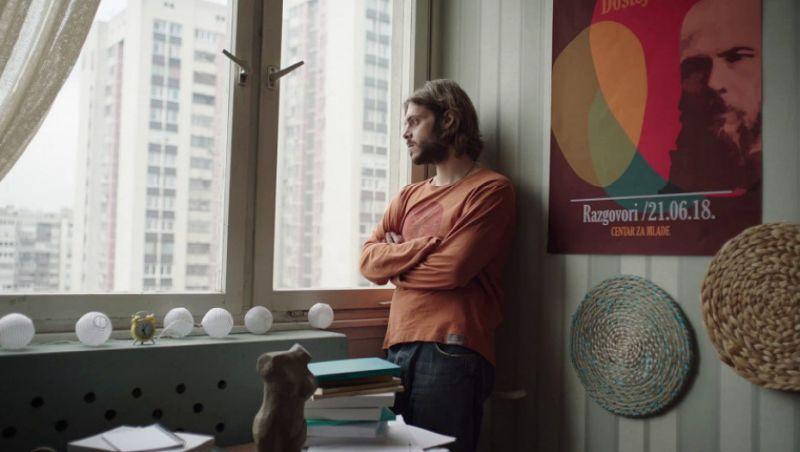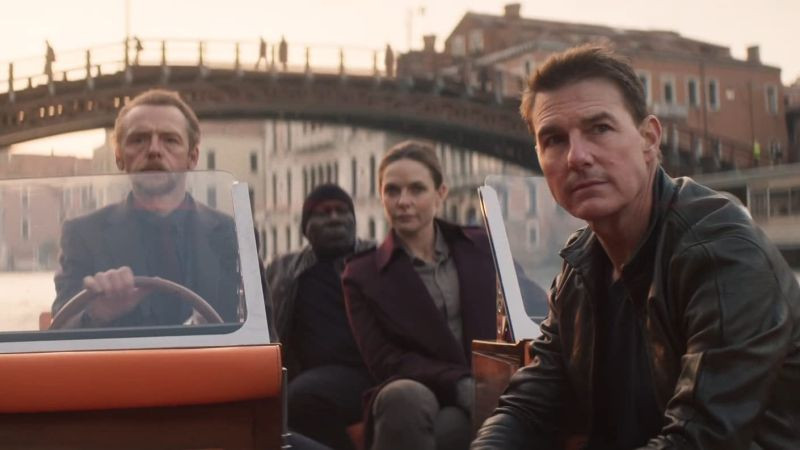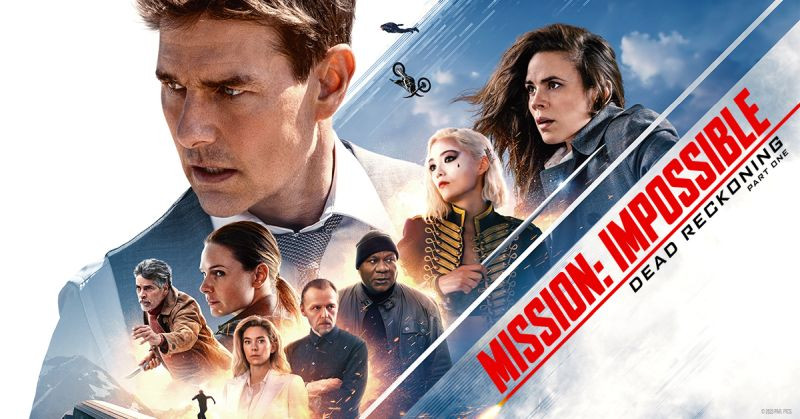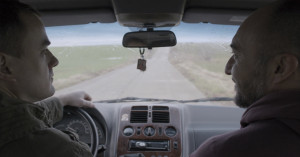 Filmofil.ba sa ponosom predstavlja kritike mladih autora nastale u okviru ovogodišnjeg programa Talents Sarajevo na 22. Sarajevo Film Festivalu
Filmofil.ba sa ponosom predstavlja kritike mladih autora nastale u okviru ovogodišnjeg programa Talents Sarajevo na 22. Sarajevo Film Festivalu
Piše: Emre Çağlayan Prevod sa engleskog: Bojana Pušara
Rumunski režiseri Cătălin Rotaru i Gabi Virginia Sargă dodali su beskrajnom nizu apokaliptičnih filmova i svoj relativno potcijenjen kratki film 4:15 P.M. The End Of The World/4:15 P.M. Sfârșitul lumii (2016). On ne prikazuje spektakularno uništenje svijeta, niti ima elemente uzbuđenja i katarze kao uobičajeni ljetni blockbuster. Negdje na jugu Rumunije ne dešava se nikakva prirodna katastrofa koja prijeti ljudskom rodu, nego nešto još strašnije - degradacija etičkih normi i indiferentnost prema ljudskoj patnji koja se ničim ne može opravdati. Dan je prosječan čovjek u srednjim godinama koji vozi kamion seoskim putem na zahtjev svog šefa. Na putu sreće stopera koji se predstavlja kao Isus Hrist, jedan i jedini Božji sin. Za Dana to je sve osim šale i on izaziva Isusa na čitanje misli. U neočekivanom raspletu događaja, Isus govori Danu o nesanici koja traje tri stotine i devedeset sedam dana nakon traumatičnog događaja koji je uništio njegovu porodicu i njegovu dušu, te predstavlja okidač za dalja nesrećna zbivanja.
Način na koji su u ovom filmu formirani dijalozi podsjeća na Nuri Bilge Ceylanov Once Upon A Time In Anatolia/Bir zamanlar Anadolu'da (2011) koji napušta šablonsko prikazivanje balkanskog regiona. Likovi su prikazani kao glave koje govore u zatvorenom prostoru i asociraju na vještačku, obmanjujuću i nevidljivu društvenu hijerarhiju. Kada govorimo o 4:15 P.M. The End Of The World, on se bavi značajnim temama koje se tiču Novog Zavjeta i razlikama među društvenim slojevima, pri čemu koristi vizuelna estetska sredstva. Upravo to i čini nejasnu varijaciju u talasu hiperrealističnih rumunskih filmova koji je trenutno zahvatio internacionalne festivale u posljednih desetak godina.
Potoji još jedan pojam bitan za razumijevanje filma, a nepoznat je onima neupućenim u rumunsku društvenu istoriju. Isus navodi da mu je odredište Videle, gradić na krajnjoj zapadnoj tački Bukurešta u kome je bilo utočište i bolnica za napuštenu i hendikepiranu djecu osamdesetih godina prošlog vijeka. U ovoj bolnici se odigrao i međunarodni skandal u junu 1990. godine kada je novinar Washington Posta sproveo istraživanje i obavijestio javnost o sistemskom zanemarivanju i nedopustivim uslovima u kojima siročad živi, pri čemu su izloženi i nepojmljivim okrutnostima od strane osoblja. Nije jasno postoji li direktna povezanost, ali rumunski režiseri su poznati po tom da nalaze inspiraciju u vlastitim uspomenama na diktaturu. Na samom kraju, bitno je dodati kako je pominjanje grada vezano za Čaušeskuovu diktaturu koja je nastavila da progoni rumunsko društvo i u devedesetim godinama prošlog vijeka. Najvjerovatnije i Danova nesanica zbog toga traje duže od tri stotine i devedeset sedam dana.
Fillmofil.ba proudly represents the works of young critics done in program Talents Sarajevo of 22nd Sarajevo Film Festival
4:15 P.M. The End of the World
Written by: Emre Çağlayan Translation: Bojana Pušara
Romanian duo Cătălin Rotaru and Gabi Virginia Şargă add to a countless series of apocalyptic films with their relatively subdued and understated short 4:15 P.M. The End Of The World/4:15 P.M. Sfârșitul lumii (2016). And yet this is no film concerned with a spectacular destruction of the world, nor is it as thrilling and cathartic as per the formulaic characteristics of a random summer blockbuster. Here, somewhere around the plains of Southern Romania, it is not so much a natural catastrophe that causes humanity’s demise but something much more indistinguishable – a degradation of ethics and an inexcusable indifference towards human suffering. Dan is an ordinary, middle-aged, middle-class man, who drives his commercial van across a provincial road at the demands of his boss. On the road he encounters a hitchhiker, who soon introduces himself as Jesus Christ, literally, as the one and only son of God. For Dan this is all but a joke, and he provokes Jesus into reading his thoughts. In an unexpected revelation, Jesus tells Dan about the latter’s 397-day insomnia since a traumatic experience that ruined his family and his soul, which triggers further tragedy.
The ways in which the film stages dialogue, is reminiscent of Nuri Bilge Ceylan’s Once Upon A Time In Anatolia/Bir zamanlar Anadolu'da (2011), a recent film out of a cluster of others from the Balkan region, where the framing of characters as talking heads in a confined space lay bare an imposed, artificial and invisible social hierarchy. In the case of 4:15 P.M. The End Of The World, the short makes complex references to the New Testament and the frictions between different social classes, by employing a visual aesthetic that comprises an indistinct variation on the hyperrealist wave of contemporary Romanian films that took international festivals by storm in the last decade.
But there is another entry point that is most likely unavailable to audiences unfamiliar with the social history of Romania. Jesus declares his terminal direction as Videle, a small town located at the Western outskirts of Bucharest and home to a hospital for abandoned and handicapped children throughout the late 1980s. This hospital was the place that also led to an international scandal in June 1990 when an investigative journalist at the Washington Post published a report on the systematic neglect and appalling conditions of orphaned children, suffering from an inconceivable range of atrocities. It is not clear whether there is a direct link, yet Romanian directors are known for drawing inspiration from their individual memories of the dictatorship. At the very least, the mention of the town is symptomatic of Ceaușescu's legacy that continued to haunt RomanianRomanian society well into the 1990s, and that perhaps Dan’s insomnia is bound to last longer than a mere 397 days.

